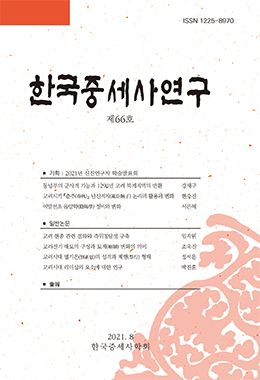This study aims to illuminate the utilization of and the academic background behind the anecdote about traitors in Chunqiu (Spring and Autumn Annals) in the Goryeo Dynasty(918~1392), in order to reveal the role of Confucianism in Goryeo society. According to Mencius, Chunqiu was written by Confucius, who wished to criticize traitors as “Nansin Jeokja”(亂臣賊子), which means subjects who killed their kings (Nansin) and sons who killed their fathers (Jeokja). The intellectuals in the early and middle Goryeo periods selected and used the anecdote to criticize actual traitors such as Yi Jagyeom and Cheok Jungyeong, after reading Mencius. It gave authority and legitimacy to them to criticize traitors based on Confucian thought. Since King Gongmin’s reign (1351~1374), intellectuals have used the anecdote to claim that anyone can kill traitors, and are not limited to criticizing them. That idea originated from Mengzijizhu (孟子集注) written by Zhu Xi(朱熹) which was itself influenced by Chunqiuzhuan(春秋傳) by Hu Anguo(胡安國), both of whom were Neo-Confucianists. In the late Goryeo period, Yi Seonggye and his followers focused on the usefulness of the anecdote and used it to execute King Wu and Chang and attack anti-Yi Seonggye political groups. Political groups in the late Goryeo period had been influenced by Mengzijizhu regardless of their political stance, thus political attack based on Chunqiu’s anecdote could influence on them.


